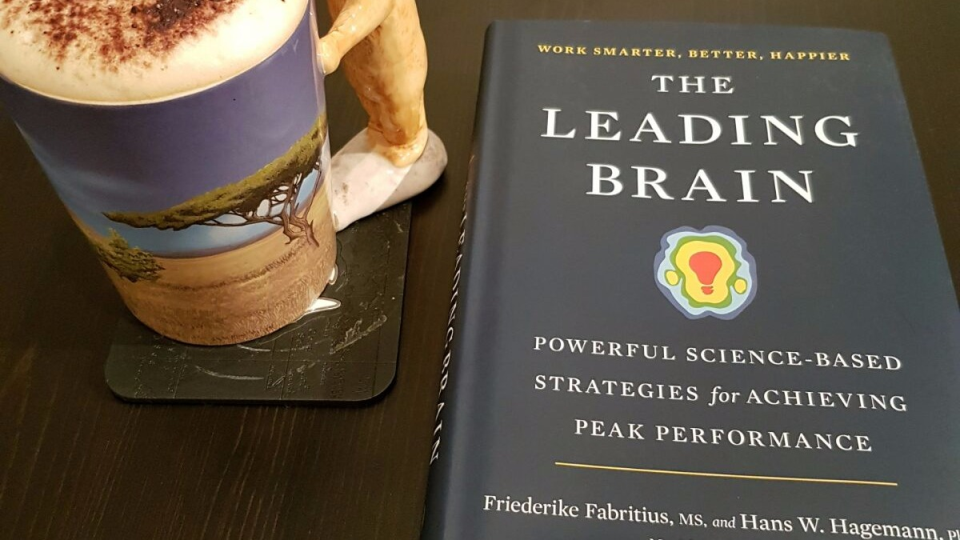The Leading Brain

- Original Title:
- The Leading Brain : Powerful Science-Based Strategies for Achieving Peak Performance
- Author:
- Friederike Fabritus and Hans W. Hagemann
- Published:
- 2017
- Buy at:
- bookdepository.com
“The Leading Brain” is book that integrates best practices from neuroscience and leadership for increasing productivity and work performance. Authors of this book are Friederike Fabritius, neuropsychologist, and Hans W. Hagemann, leadership expert, who have broad experience in working with top executives at multinational companies. In this book, they share best practices that are science-based and already proved in practice.
“The Leading Brain” is organised in three parts with three chapters in every part. First part of the book deals with science of achieving peak performance. Here authors explain neurochemicals behind peak performance, give advice how to achieve emotional regulation and why it is important, and how to focus on something and avoid distractions. The second part of the book deals with strategies for changing the brain. Here authors explain how we developed habits, why habits are important and how to change bad habits. Also, they explain importance of our unconsciousness in resolving problems and making decisions. This part also describe our ability for lifelong learning and how that can change our brains. The third part of the book is about developing high-performing teams with focus on team diversity, cultivating trust and achieving peak performance in the team.
This book is very easy to read; the important science studies are explained in very simple and understandable way. I love how authors combine research, humor and examples from real life. For every practice in the book there is scientific explanation about it’s mechanism and also example from real-life, which first gives readers reasons for these practices, while examples makes it very easy to remember. Also, I like how this book is organised in three parts and chapters with subtitles that makes easy to find if you want to read something again. Also, at the end of every chapter there are key points from that chapter, which makes easier to remind and summarises everything that you read from that chapter. I find it very helpful how good practices in this book are explained, since they are explained in steps that are easy to follow and implement in work and life. I learned a lot from this book, especially about our unconsciousness. Before reading this book, I never thought that our unconsciousness can have such impact and importance in our work and life.
I think about this book more as a guide that you can come back every time you need advice for improving your work performance, establishing good relations with your colleagues, organising your team etc. I highly recommend reading this book and implementing practice described in the book not only to managers, but to everyone who wants to improve his work, it can only lead to more fulfilment in your life.
While whole book has great studies and examples, this sentence had the greatest impression on me:
“Lifelong learning isn’t simply a slogan. It’s an exciting reality”.





